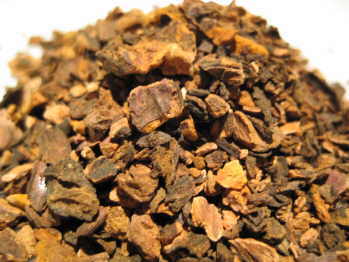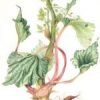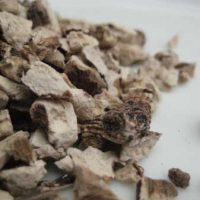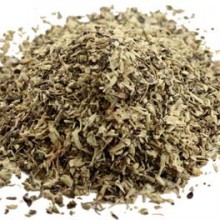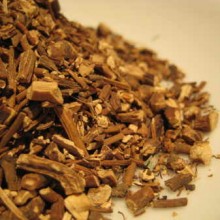Wild Rhubarb Root, also known as Turkish Rhubarb Root, Sweet Round-Leaved Dock or Pieplant, is very well recognized as having multiple digestive actions and also operating directly as a conveyer of bile salts. It can therefore be classed as an hepatic stimulant.
How Does Wild Rhubarb Root Work?
Rhubarb Root performs its first digestive operation in the mouth by stimulating the taste buds with its pleasantly bitter flavour which gives a sense of cleansing out the oral cavity, preparing it to taste the coming food. When Rhubarb Root reaches the stomach its digestive effects truly commence, causing an increase of the flow of gastric juices, thus exciting the stomach’s processing of the nutrients in the material it contains. Besides stimulating the secretions from the liver which convey the bile salts, it assists the intestine in regulating the absorption of fats.
Rhubarb root exerts a gentle laxative action by stimulating the secretion of bile into the intestines. It also stimulates the gall duct to expel toxic waste matter, purging the body of waste bile and food. As a result, it is alleged that the liver is cleansed and chronic liver problems are relieved. In small doses, the powdered root is an astringent and checks loose stools, but in larger doses it irritates the colon causing the bowels to evacuate (diarrhoea).
Cautions If diarrhoea or abdominal discomfort develops, contact a qualified health practitioner. It may be necessary to either lower the dosage until the body adjusts to it, or stop taking it.
A gentle laxative tea recipe:-
It really doesn’t matter what quantity of each of the herbs listed below that you use merely ensure that the ratio is adhered to. Simmer the ingredients below in one litre of water for around 20 mins. Allow to cool, strain, and bottle the resultant liquor in a steralised container
3 parts Psyllium Seed
3 parts Liquorice Root
2 parts Rhubarb Root
2 parts Crushed Senna Pods
2 parts Angelica Root

